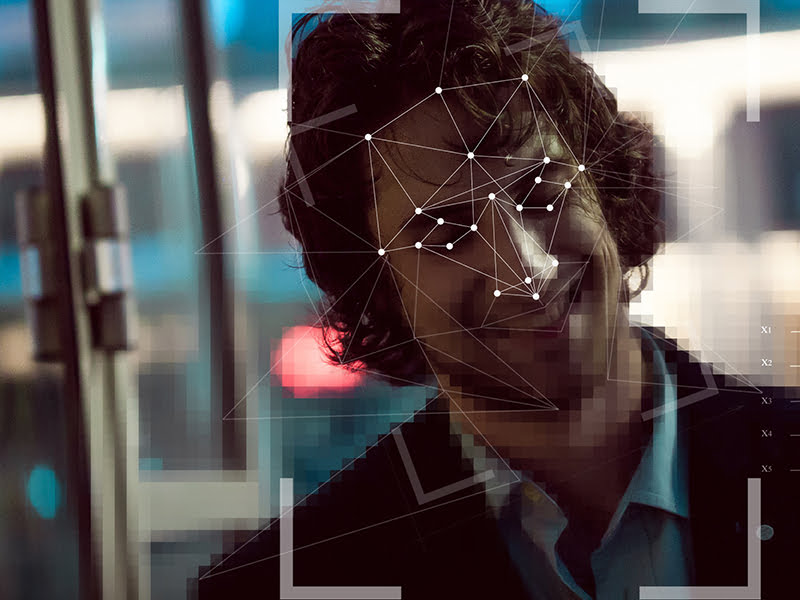The Good Guys will “pause” its use of facial recognition technology following an investigation and subsequent complaint to the privacy regulator by a consumer group. But Bunnings and Kmart are digging in on their use of the controversial technology.
The three retailers have been using facial recognition to identify customers as part of security systems, which they say reduce theft and aggressive behaviour in stores.
Consumer group Choice exposed the practice as part of a wider investigation of Australian retailers’ use of the technology. Choice has alleged it was a breach of Australian privacy law in a complaint to the regulator.
The regulator, the Office of the Australian Information Commissioner (OAIC), is now obliged to investigate the matter, and has already found against another retailer in a separate case privacy experts say is similar.

As backlash grew to the latest use of facial recognition by retailers, one backed away from the controversial technology this week.
The Good Guys on Tuesday confirmed it had paused its trial of facial recognition in two Melbourne stores, which it said was part of a new security system. But the retailer is confident it hadn’t broken any laws.
“The technology was solely used to review incidents of theft, and for the purposes of customer and team member safety and wellbeing,” a spokesperson for The Good Guys said. “The decision was made to pause the trial at this time pending any clarification from the OAIC regarding the use of this technology.”
But Bunnings and Kmart said their position has not changed. Spokespeople for the two Wesfarmers retail giants confirmed the companies were aware of the complaint with the regulator and are awaiting correspondence.
Bunnings looks set to argue the use of the technology is proportionate to the need to keep staff and consumers safe in stores, and has hit back at the consumer group.
The hardware retailer’s chief operating officer Simon McDowell said Bunnings is “disappointed” by Choice’s “inaccurate characterisation” of its use of facial recognition technology.
“There are strict controls around the use of the technology which can only be accessed by a specially trained team. This technology is not used for marketing, consumer behaviour tracking, and images of children are never enrolled,” he said in a statement.
“We let customers know if the technology is in use through signage at our store entrances and also in our privacy policy, which is available via the homepage of our website.”
A spokesperson for Kmart said, like Bunnings, its customers are made aware of the technology through physical signs and its privacy policy.
“We make our customers aware of facial recognition through our conditions of entry signage in participating stores and through our Kmart privacy policy,” the spokesperson told InnovationAus.com.
Unlike The Good Guys, the Wesfarmers retailers will continue to use facial recognition while the OAIC considers an investigation, following Choice’s official complaint this week.
The complaint alleges the use of the technology by retailers for a business purpose is disproportionate to the privacy risks it creates, and consumers have not given consent or received adequate notice of the practice.
If the regulator proceeds to an investigation, privacy experts expect Choice’s argument will be compelling, while the retailers’ arguments will not hold up.
Salinger Privacy founder and principal, Anna Johnston said the case would have “very clear parallels” with an OAIC determination against 7-Eleven last year for its use of facial recognition technology.
Under Australian law, to justify collecting personal information retailers need to demonstrate it is for a legitimate business function and is proportionate to the privacy impact it creates. Retailers also need to inform customers about the collection and obtain consent, Ms Johnston told InnovationAus.com earlier this month.
In the case of facial recognition, the data being collected is biometric and considered sensitive under the law. It means the privacy impact is much greater and the consent requirements higher.
“That means every single customer needs to proactively agree to the collection of biometrics. It must be proactive, not passive,” Ms Johnston said.
“So seeing a notice and then entering a store does not meet the requirements for consent. [Consent] also must be voluntary. It cannot be a condition of entering the store.”
The 7-Eleven case, and others before it, have clarified “vague notices” and terms in privacy policies do not constitute this consent, Ms Johnston said.
Do you know more? Contact James Riley via Email.


This is only the tip of the iceberg in relation to ethical dilemas that technology is delivering to our doorsteps.
It just happens to be a ‘public’ one.
Our regulatory regimes are very poorly placed to make sensible and consistent rulings on these dilemas, as the tech is moving way quicker than the regulations can evolve.
Sadly, the regulators are also often captive to the tech promoters given that regulation is an inherently political process.